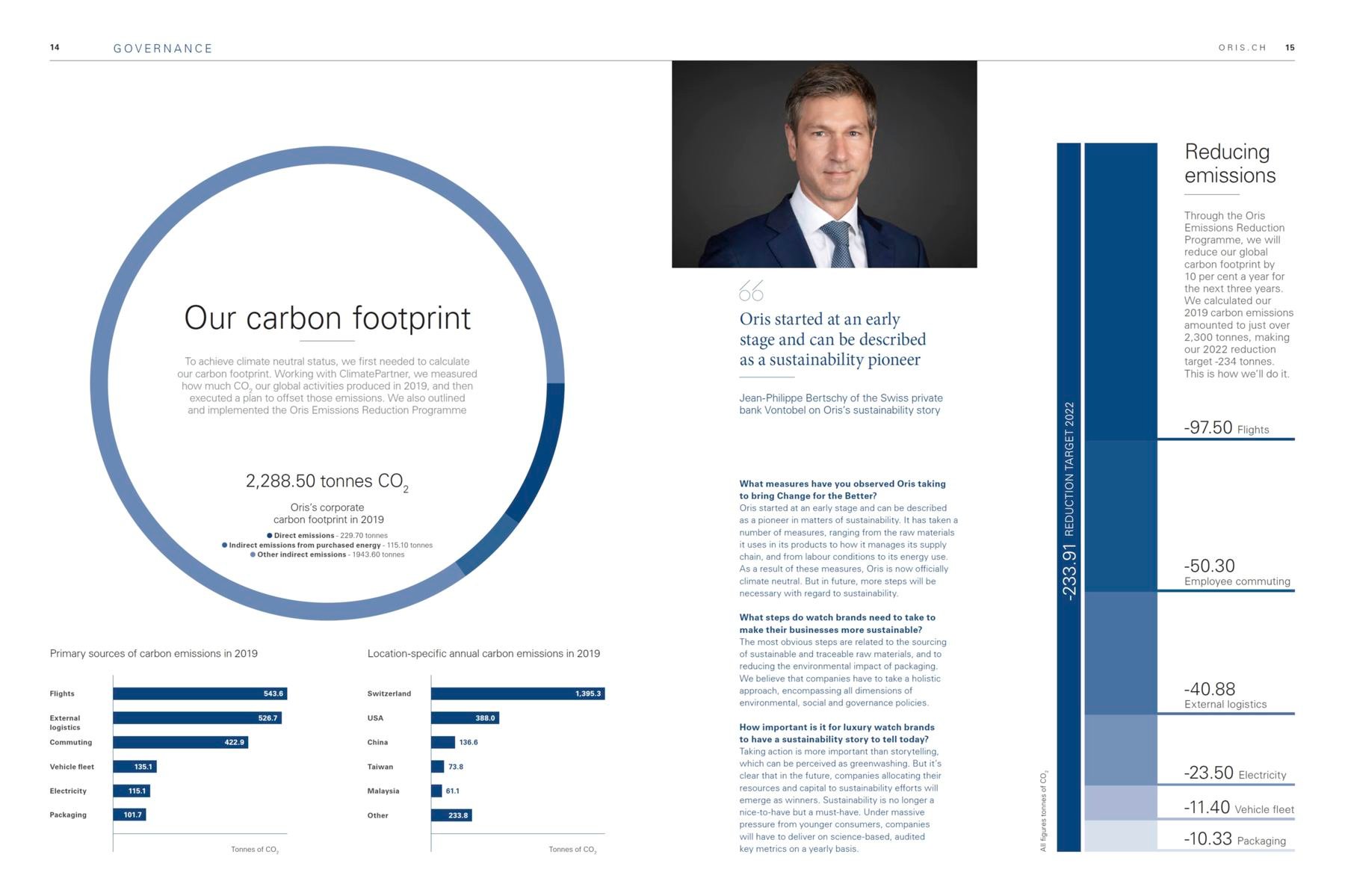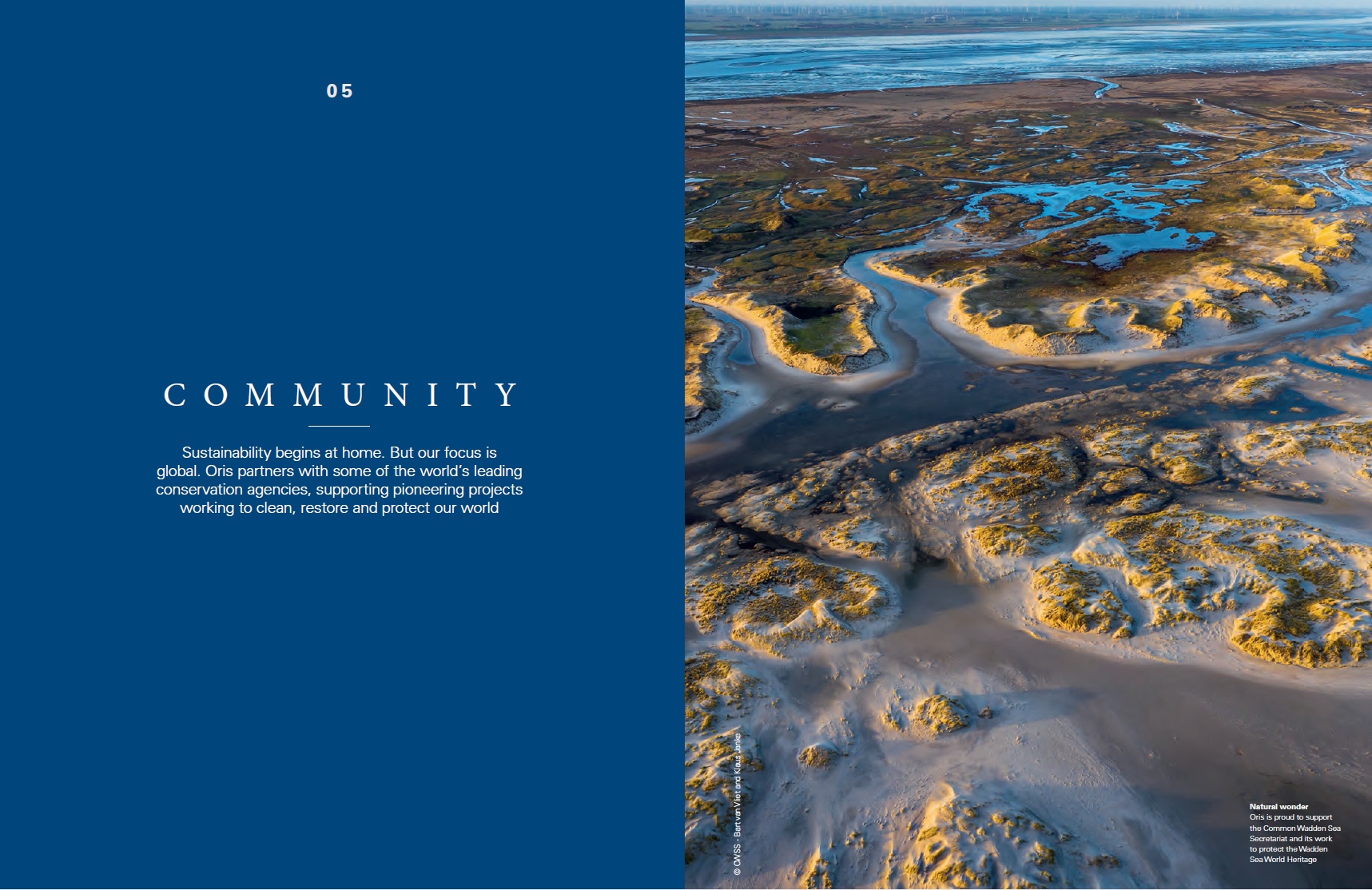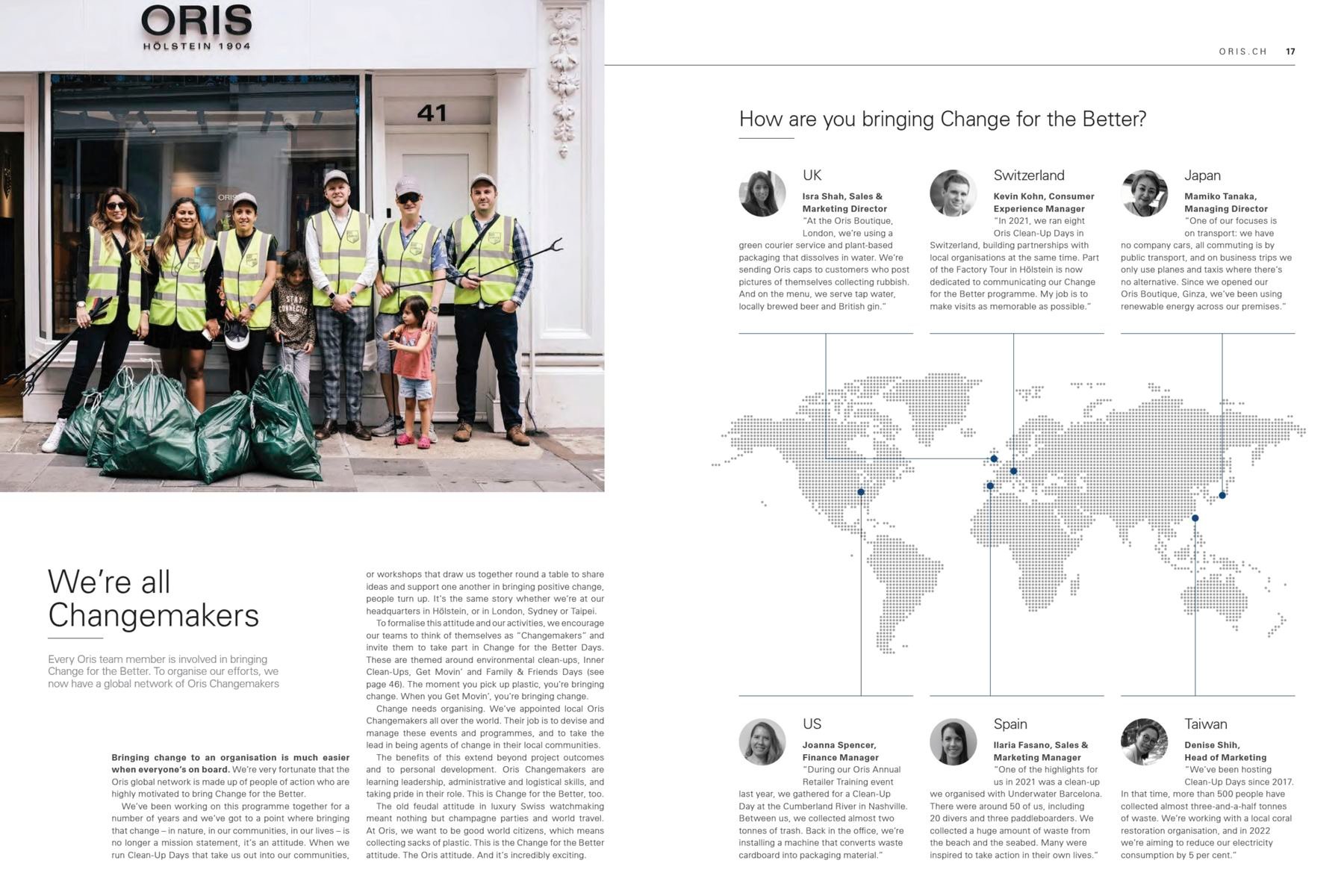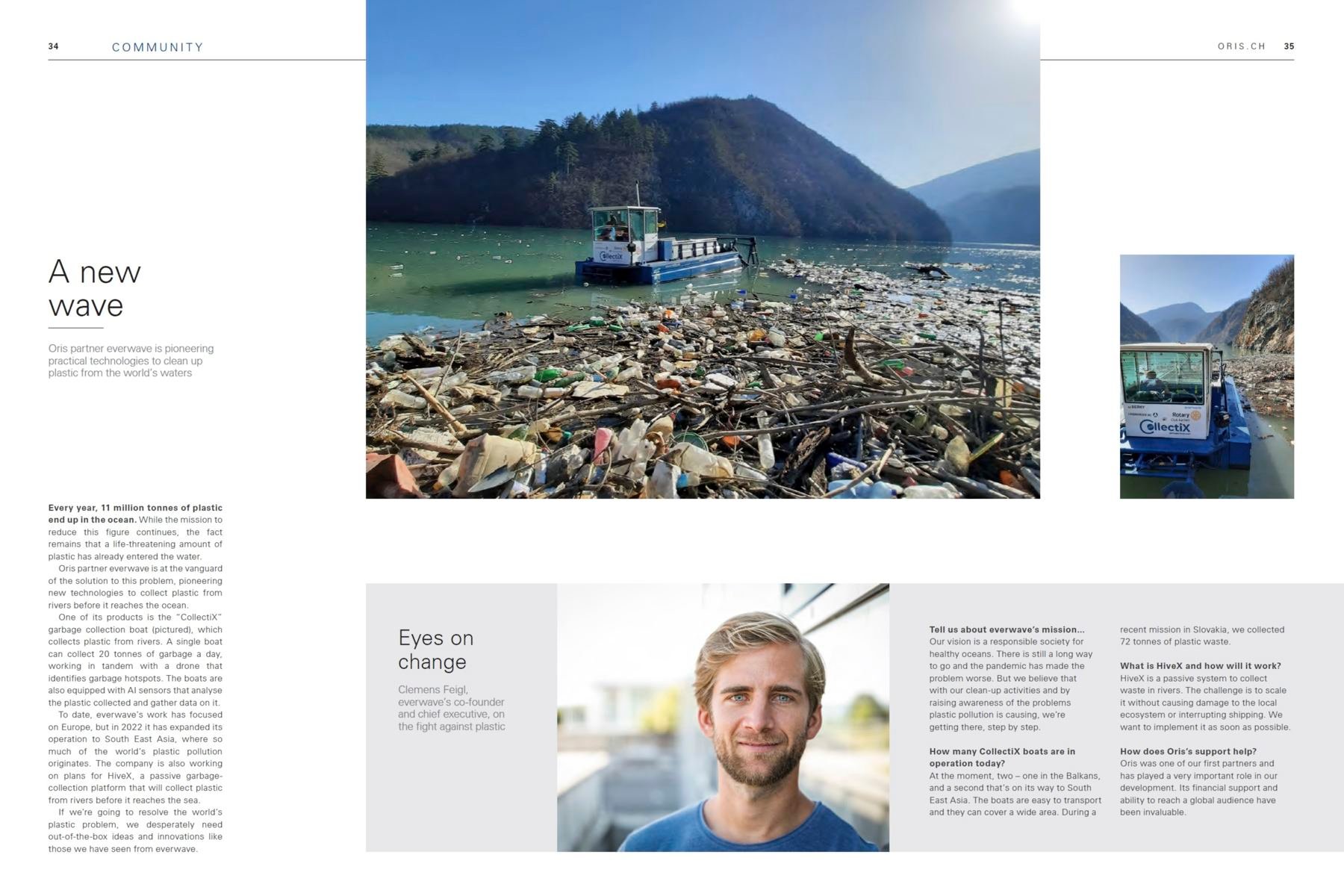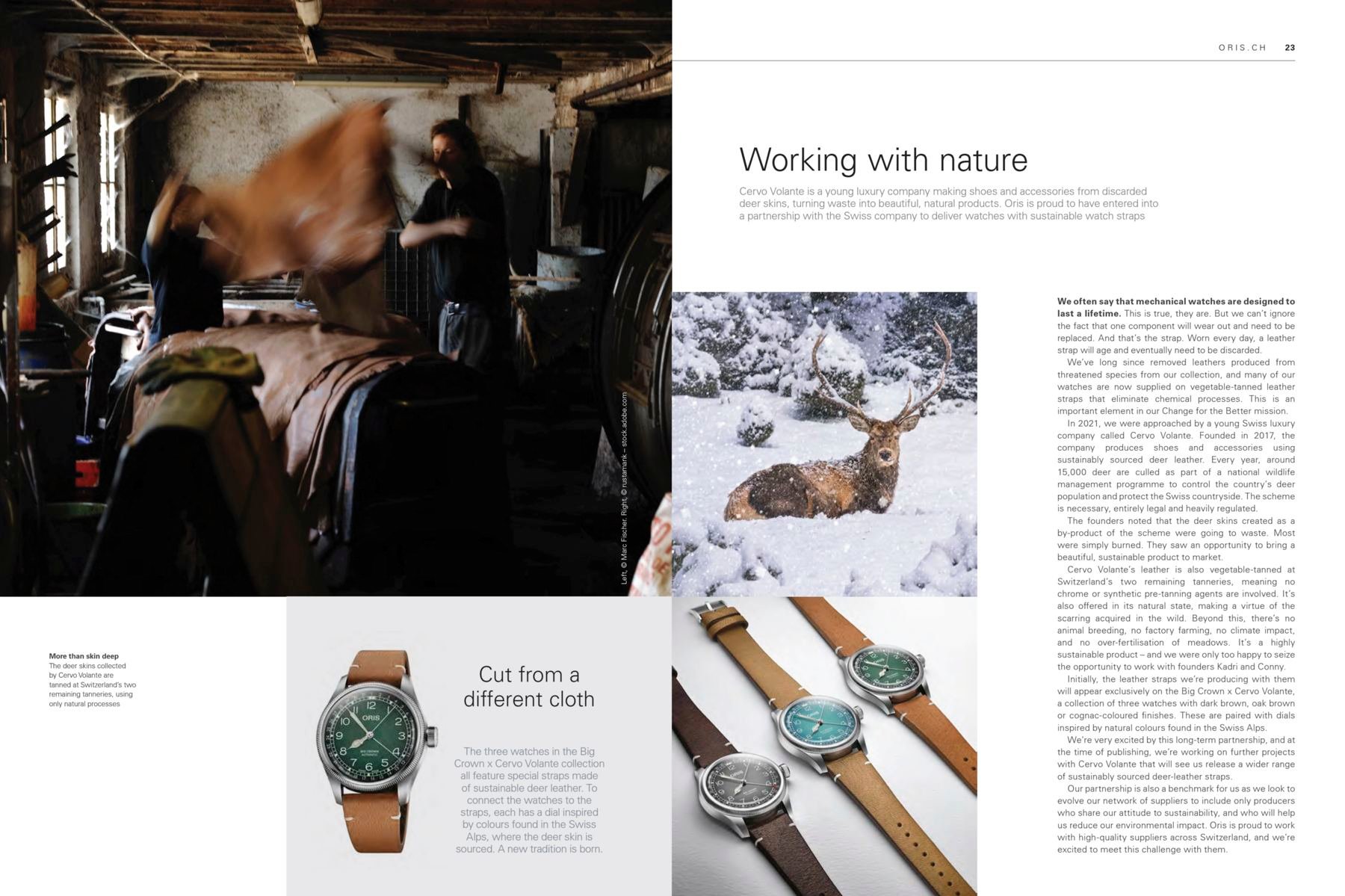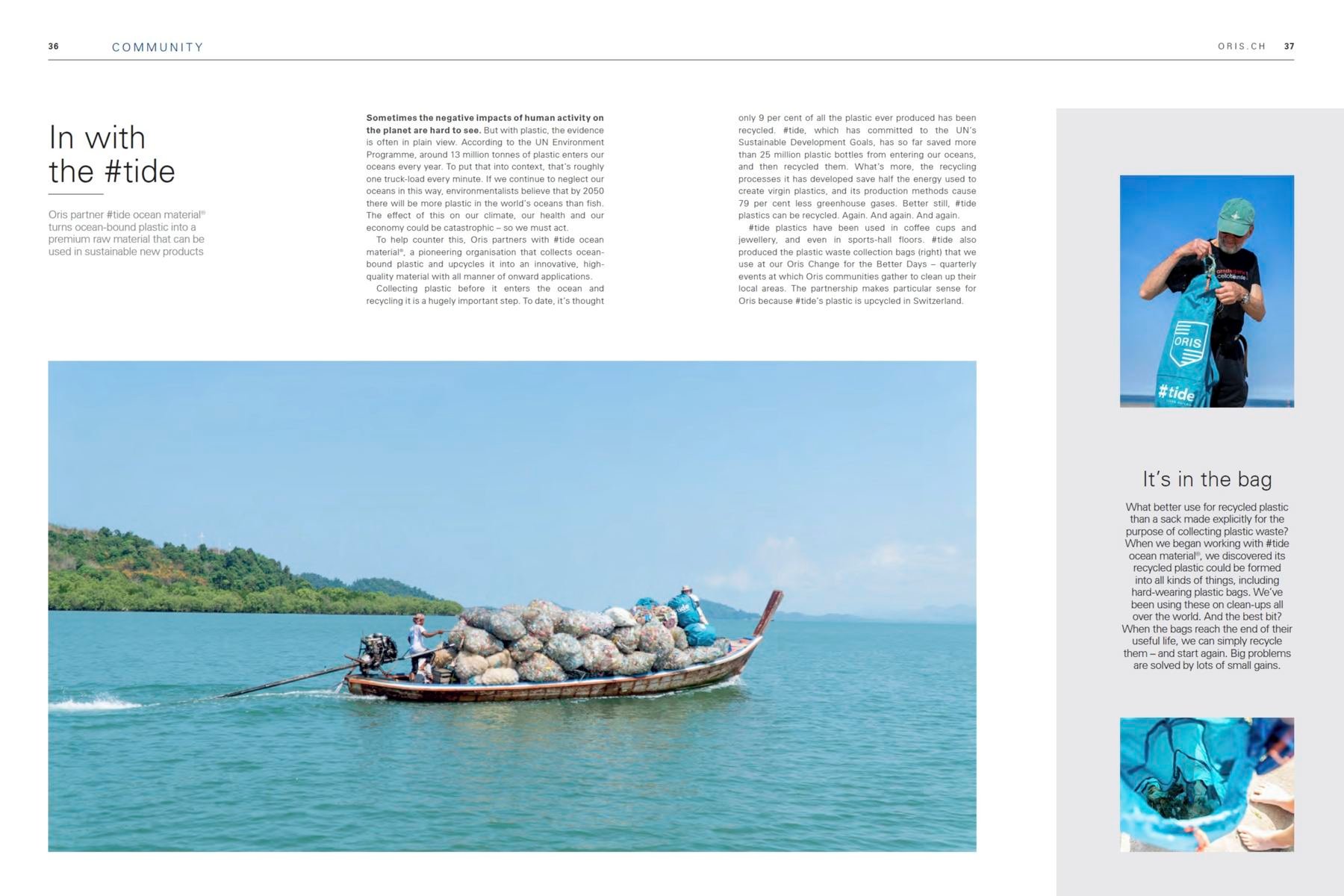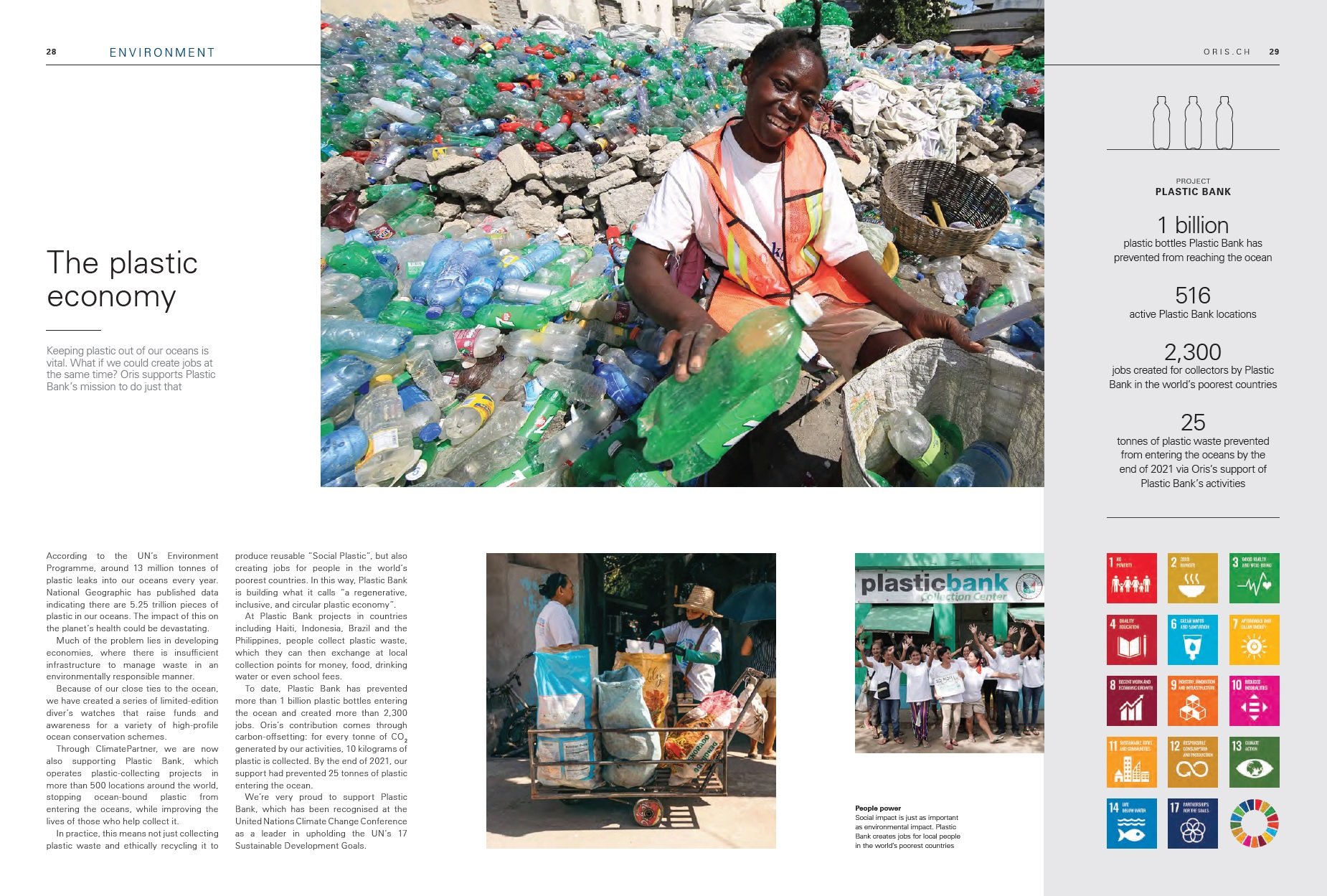Oris Releases Its 2022 Sustainability Report — A Big Step In The Right Direction For The Watch Industry
Oris recently released its Sustainability Report for 2022. It’s almost 50 pages of accounts of progress and promises for the future. Like some corporations that compile information for their shareholders in a sleek, savvy package, the Oris Sustainability Report is a seductive package for the environmentally-minded. It succinctly covers where Oris has come from and where the brand is going. I have to say, I’m impressed, as I have been following Oris for a while now. But my question is, is it enough?
Look, I’m a bit of a sustainability kook. In another life, I’m a professional arborist, climbing and taking care of trees in an urban forest on the West Coast of the United States. I was raised with strong values regarding the care of our planet. From time to time, I can be found with trash-grabbers, collecting litter off the streets of the neighborhood.
All this is to say that I’m thrilled when any company I’m interested in takes an interest in becoming more sustainable. But, like many consumers, I’m already feeling burnout with the hot word “sustainable” and all the companies that are quick to jump on the trend for a chance at increased sales. Lip service abounds around environmental responsibility. It can be tedious to sort out which companies are actually making an effort. After watching Oris for a while, staying on top of its released figures and stories, and reading this first Sustainability Report, I’m okay with saying Oris is making an effort. But there’s a lot more to do.
Carbon Neutral with ClimatePartner
The big news and the reason for this first-ever Sustainability Report is that Oris has achieved carbon neutrality. The brand accomplished this in partnership with ClimatePartner, a Munich-based regulatory body that walks companies through all steps of the process and provides solutions to achieve the goal. Carbon neutrality can look like many things. Ultimately, though, it means that an entity’s release of carbon into the atmosphere matches its ability to capture carbon. At least on paper.
I’m not sure how the system works in Europe or other parts of the world. The carbon-neutrality game here in the United States, however, has become plagued with the purchasing of carbon credits. This is a workaround to any actual efforts to pursue sustainability. At the beginning of the pandemic when much of the country shut down, important environmental programs here in California were in jeopardy of failing because no companies were purchasing the carbon credits necessary for generating revenue. No industry means no emissions needing to be offset with carbon credits. Wrap your head around that tangle.
But thankfully, Oris and ClimatePartner are taking actual efforts to reduce the brand’s emissions and support worthwhile environmental efforts. Oris has reduced its energy consumption through better insulation of its headquarters and the addition of solar energy. The brand has also put an emphasis on public transportation and electric vehicles for transportation. Furthermore, the brand avoids work-related air travel as much as possible and plans to reduce it even further. Oris has committed to continue lowering its emissions by 10% every year for the next three years. I wish that timeline was not finite, but it’s a start.
Change for the Better
One aspect of Oris’s efforts I’m already familiar with is its “Change for the Better” campaign. The Change for the Better program encompasses environmental, economic, and social activism. As showcased in individual releases and summarized in the Sustainability Report, Oris has a substantial history now of partnering with organizations around the world to promote positive change across the genres. This has taken the form of coral reef restoration, the preservation of important tidal flats, and public programs that promote health and local communities.
These partnerships often result in limited-edition watches that increase awareness of the specific efforts as well as generate funding. As I noted in a previous article on Oris’s sustainability, there’s no expectation to fix each problem with a single limited-edition run. Instead, it’s a combination of chipping away at an issue and continuing the conversation around it through increased awareness.
A company culture of environmentalism
An aspect of sustainability highlighted in the report that I was not previously aware of (but should have guessed) is the internal efforts and participation among employees. The report portrays Oris as a company that promotes conversation and innovation across the entire workforce worldwide. I’m a sucker for personal stories, and I like the blurbs from employees around the world about biodegradable packaging in the UK or the reduction of company cars in Japan.
Oris employs a “Corporate Sustainability Ambassador”. This is essentially a person whose sole purpose is to continue the conversation internally about sustainability. On one hand, it certainly is a shiny marketing tool to tack onto a press kit such as this Sustainability Report. On the other, if this ambassador is actually pushing for progress and has received the tools and teeth to actually accomplish real change, then there’s real potential that the role’s existence has merit beyond the sake of its marketability. There’s no clear-cut way for everyone everywhere to instantly become more sustainable. The overall effort is comprised of small shifts tailored for each individual entity and scenario. That sort of change requires constant conversation and coordination, making a “Corporate Sustainability Ambassador” a potentially important position within an environmentally oriented company. Good luck, Sven.
The ugly truth
But no amount of solar panels, beach cleanups, and conversations are going to change the truth of the matter: industry produces waste and emissions. Oris acknowledges this in the report. The brand starts the report with the idea that a mechanical wristwatch is inherently sustainable. This is an idea that Oris obviously and openly doesn’t subscribe to, pointing to the rest of the report to show what the company is doing about that. But the idea is pervasive. In a vacuum, and especially set against battery-powered quartz watches, a mechanical wristwatch doesn’t produce a lot of “bad stuff”. There may be some of you that are rolling your eyes at the sustainability storm reaching the watch industry’s shores. Like, aren’t there still oil spills somewhere we could be worrying about instead? Leave the watches out of it. Sorry, but no.
A watch already in existence may not consume or produce much carbon, but that watch getting to you certainly did. Mining raw materials, refining them, and manufacturing them into the components of the watch consumes an incredible amount of energy. The offices, stores, conventions, and shipping consume quite a bit as well. Oris is making a serious effort to reduce its footprint with the latter, but there’s no escaping the output of energy and consumption of materials for the production of physical goods.
Recycled materials and natural processes
Oris is trying, though. Two non-limited Aquis models colorfully feature recycled materials such as ocean plastic. Oris has also partnered with another company to make watch straps out of deer hides that would otherwise be destroyed. It’s a nice gesture, and certainly, another way to ignite or continue conversations regarding consumption, material, and waste. But plastic dials and repurposed leather straps on a few watches in a company’s catalog are not going to change the world.
Is it enough?
I’m an optimist out of necessity. If left un-tempered, however, I’m a miserable realist. And the reality is that, if we’re talking real environmental change, Oris, you, and I are not doing enough. I know, as far as accomplishing big changes, a watch company isn’t going to clean up the world. There are a hundred issues much more pressing than not enough action from the watch industry. But if we’re going to accomplish anything collectively, it’s up to us each to do our best individually.
… Oris is betting — like so many companies — that sustainability is a large focus of the average consumer.
Oris, I think by any metric, is the most sustainable watch company at this moment. I’d like someone to prove me wrong and show me a company that’s doing even more. But I think most companies in most industries are only paying lip service to sustainability as a marketing tool. Oris gets a pass on marketing sustainability because the brand is actually making an effort towards change, and it’s a costly one at that. One of the arms of its Change for the Better campaign is “Economic”, and Oris is betting — like so many companies — that sustainability is a large focus of the average consumer. But whereas many other companies see sustainability as a trend to exploit for short-term financial gain, Oris is making a real effort to shift its corporate culture, operations, marketing, and products to set itself up for the 21st century of watchmaking.
Every achievement shaded by inadequacy
If sustainability is the future — which I have to believe it is — Oris is the poster child for the watch industry. Like any shining example, while the brand has done so much already, it’s up to folks behind it to do more, taking the rest of the watch industry kicking and screaming or woefully playing catch-up along with them. Everything Oris has done isn’t radical. It isn’t. It’s just more than any other watch company has done. We, the public, now have houses with solar panels and a myriad of electric vehicles to choose from. We recycle and buy recycled products when we can. The “reduce, reuse, recycle” approach that Oris is exhibiting is a mantra of existence much of the global public is already well-versed in. In truth, one reason everyday people haven’t done more is that they simply haven’t been able to.
What we consume and how we consume (and discard) is a two-way conversation. Yes, the power of the purchaser’s dollar is great. But even the consumer is limited to what is available, both in product and means. We need companies that are serious about environmentalism to make real changes in the way they do business so that we, the consumers, can hold up our part of the deal. That is to say, I want Oris to step out and actually change the environmental practices of the watch industry.
Some pointed suggestions
Oris’s Sustainability Report mentions the woes of plastic pollution many times. Okay, Oris, commit to not using disposable plastic in any of your manufacturing, marketing, or packaging. You don’t have to capture and recycle the plastic you don’t generate. The report acknowledges that company flights produce more carbon emissions than any other aspect of Oris’s business. Okay then, Oris, commit to no more flights. Ever. The pandemic has taught us that global economies can survive when hardly anyone is traveling. These are extreme measures, and perhaps unreasonable. But the definitions of extreme and unreasonable are changing rapidly along with our world.
For all the work the word “sustainable” can do for a company’s bottom line, I wonder what would happen if one were to fully make the leap. It’s a risk for sure, but I can’t help but think that the dollars lost in initial investments towards radical sustainability would result in long-term fervent customer loyalty. Perhaps I lose sight of how many people care enough for that to be a selling point. Also, Oris may not want to be aligned with radical environmentalists, though abstaining from using plastic or flying is mostly radical because doing so is so difficult. Regardless, I think we forget that shifts towards “sustainable” practices should in theory remain viable and relevant for longer. It’s the essence of the definition of the word.
Go your own way
Really, Oris, I ask that you please just keep doing the work. Releasing an almost 50-page sustainability report for the public’s consumption is already a bold move in a world where companies market to their consumers like they’re impulsive, easily distracted children. That’s an expectation I’m afraid we often meet wonderfully. We see you, we appreciate you. Keep working towards what’s important, and expect ever more of us as we will always expect of you. If we’re going to get anywhere, we’ll be getting there together. Amen.
If you’d like to read the entirety of Oris’s 2022 Sustainability Report, you can find it here. Let us know in the comments what you think of the brand’s environmental efforts and the greening-up of the greater watch industry.

